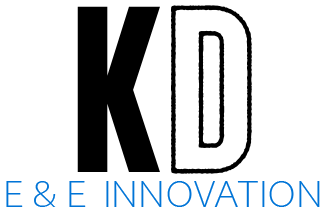About

The relationship between knowledge, technology, and society is complex and involves a scientific approach to analytical investigation. Technology bridges the gap between both, knowledge, and society. The innovational level of technology characterizes the notion of its mobility, sociable to the development of human-machine societal relationships. Technology conjugates the softness and hardness of intelligent content and form to configure the space of knowledge in society.
The mobility of technology is the notion of knowledge accessibility that the whole field of communicable information becomes active at the click of a complex digit. But how to associate technology and the digital space of mobility with society is of noteworthy concern. This requires an experimental approach to institutional participation in the exploration of ignored aspects of knowledge phenomenon in the developmental process of society.
Knowledge technology must go deep into society. At this point, it is necessary to acknowledge that the natural sciences do not depart from their social character because they are the outcome of human social experiences and experimentations.
The Centre of knowledge development is determined to involve society to turn itself into a social laboratory to innovate ignored aspects of knowledge in the field of politics, economics, art & culture, and other social sciences and help technology to go smoothly for the development of the social system as a whole.
Social sciences seem the least understood but highly practiced faculty of human knowledge. That is the reason that natural sciences seem formulated more logically, and the social sciences are idealized as being human behavior dependent. But it rests surely that the laws parametrizing social sciences must reflect the laws, governed by natural sciences. Nonetheless, social sciences need to be re-examined both experimentally and experientially, for theoretical parametric reformation and social enforcement.

National-regional sectors, societal segments, and institutions can be stationed at social laboratory experimental setups (SLES) to identify and configure ignored aspects of institutional-societal mechanisms relating to various social phenomena. Ignored social variables once identified, can ultimately be framed into the setup of grand theoretical defines.
Social sciences are not always functional to human behaviors and do not essentially subject to human psychology. They remain all the time associated with the natural sciences. The generalized levels of both sciences coincide. The natural sciences tend to the philosophical level of knowledge which ultimately arrives at the doorstep of social sciences. At this juncture, the knowledge phenomenon of social sciences follows to lead the natural sciences and, vice versa.

The choice of subject premises is very crucial for social experimentation to obtain required inferences. The direction of inferences can be both innovative and conventional. The validity of the subject is a prerequisite for the authenticity of an innovative experiment. Research conducted without any parametric measure would eventually result in nothing if the subject premises were needless or directionless. SS follows to lead natural sciences with the fact that all the sciences express relations between human-human and human-cosmos and must work for human societies. Technology has astonishingly done the job and has bridged the gap between sciences and societies.
The Centre of KD (E&E Innovation) is focused to conduct social experiments with true premises and definite results, useful for institutional capacity building, pursuing high social values and decision-making. The principal approach to setting up a social lab would be to utilize confined resources available, along with coordination of provincial institutions and expert supervisory. The prime policy of the Centre of KD (E&E Innovation) is to identify the ignored aspects of social premises and design the lab to institute unbiased participation, for the best innovational outcome.
Mission-Institution
Create
Collaborate
Coordinate
Cooperate
Corelate
Capacitate
Capacity-Building-Objective

The objective of an SSELab is to create a controlled environment for conducting scientific research in the areas of social sciences corresponding to capacity building and beyond.
- Elaborate on ignored aspects.
- Understand organizational objectives
- Enhance institutional capability.
- Bridge up the social-institutional gap
- Conducting need based social experiments
- Testing the effectiveness of institutional policies, interventions, and collaboration optimum
- Measuring the impact of social, economic, or environmental factors
- Analyzing the social dynamics of groups, organizations, and communities.
- Developing and testing new theories and concepts
Overall, the objective of a Social Science Experimental Lab is to provide a rigorous and scientific approach to studying institutional interaction and exchange of powers to the organizational setup and social phenomena, with the goal of generating new knowledge that can capacitate public policy beyond social modules, improve social welfare, and enhance our understanding of the world around us.
